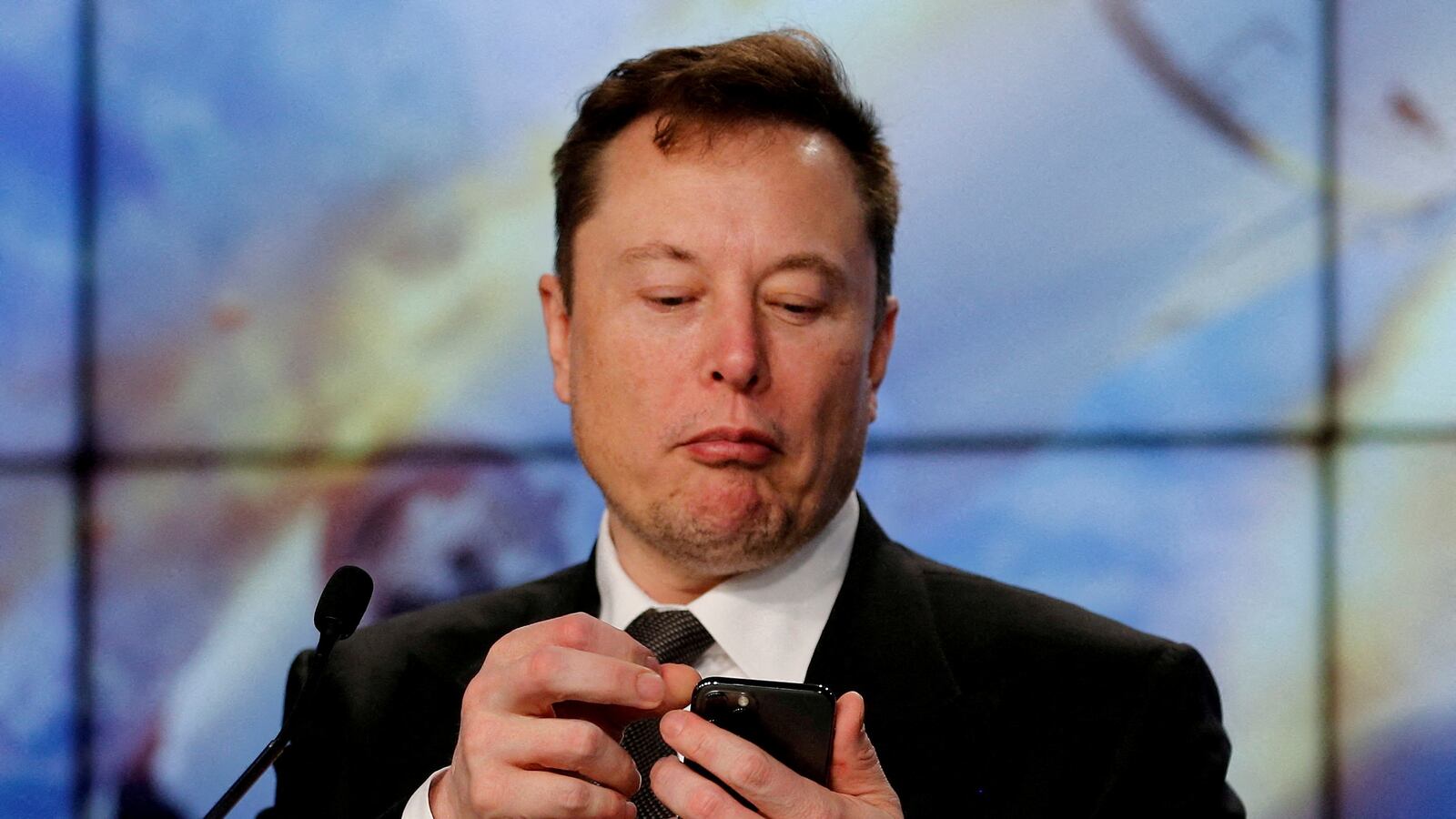Billionaire Elon Musk tweeted Friday that his plan to buy Twitter for $44 billion is “temporarily on hold” over spam and fake accounts early Friday, and then appeared to walk that back by later tweeting he was “still committed to acquisition.”
The eccentric entrepreneur said that the issue is the actual percentage of bots running fake accounts on the platform, which has been estimated to account for around 5 percent of users. Musk tweeted the deal was in limbo “pending details supporting calculation that spam/fake accounts do indeed represent less than 5% of users”—implying he didn’t quite believe it.
The number of fake and spam accounts among Twitter’s current 229 million users could affect what Musk has laid out as an ambitious plan to monetize daily user tweets through targeted advertising and other strategies. Musk tweeted earlier in the week that his priority (presumably after reinstating former President Donald Trump) was to remove the so-called spam bots from the platform.
Analysts point to the latest hiccup as another sign of internal turmoil in the buyout, according to Reuters. On Thursday, Twitter fired two top managers, presumably in some sort of pre-sale condition.
Kayvon Beykpour, who had been with the company for seven years, tweeted that Chief Executive Officer Parag Agrawal “asked me to leave after letting me know that he wants to take the team in a different direction.”
Likewise, Bruce Falck, who led the company’s revenue and product arm, also got a pink slip—and quickly changed his Twitter bio to “unemployed.” After a series of tweets he deleted, according to the Associated Press, he wrote “I dedicate this Tweet to those engineers and thank you ALL for the opportunity to serve alongside you. It’s been awesome. There is a lot more to do so get back to work, I can’t wait to see what you build.”
Another new complication: News that the U.S. Securities & Exchange Commission has opened an investigation into Musk’s late disclosure of the stake he had accumulated in Twitter. The Wall Street Journal reported late Thursday that the financial watchdog—already a thorn in Musk’s side over his tweets about Tesla—was probing Musk’s delay in submitting a form required of all investors if they acquire more than 5 percent of a public company. Musk’s form was reportedly submitted on April 4, 10 days after he bought the chunk of the platform’s stock, saving what is said to be $143 million from what would have likely been market-moving news.
Both Tesla and Twitter stocks reacted to the latest sideshow in the bombshell deal, with Twitter shares plummeting by 20 percent and Tesla’s jumping 5 percent on the news, reflecting Tesla supporters happy that the deal may not go through.
Analysts were quick to question Musk’s real motives, with Dan Ives of Wedbush Securities telling clients that the billionaire had “turned this Twitter circus show into a Friday the 13th horror show,” according to CNN. Ives noted that if he pulls out, Musk will owe Twitter $1 billion as a breakup fee. “The Street will view this deal as 1) likely falling apart, 2) Musk negotiating for a lower deal price, or 3) Musk simply walking away from the deal with a $1 billion breakup fee,” Ives wrote.






